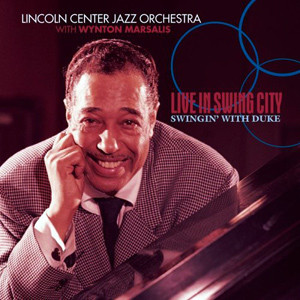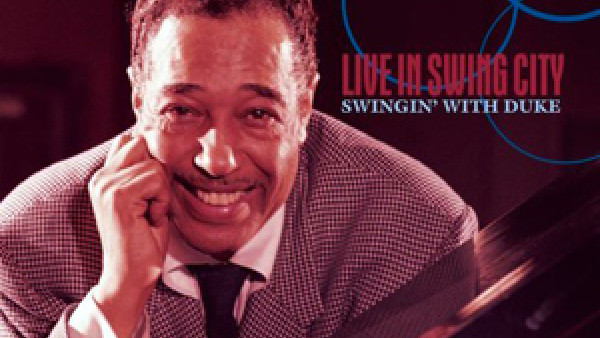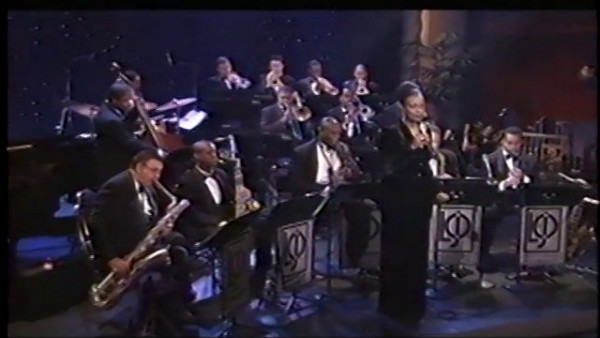PBS: An Interview with Wynton Marsalis
Wynton Marsalis, Artistic Director of Jazz at Lincoln Center, was born in New Orleans in 1961. He began his classical training on trumpet at age 12; while appearing with classical youth orchestras, he also played in local jazz, funk, and marching bands. In 1979, he entered the Juilliard School in New York and also joined Art Blakey’s Jazz Messengers. In 1983 he became the first — and, as of 1999, only — artist to win both classical and jazz Grammys in the same year, a feat he repeated in 1984. He has been the Artistic Director of Jazz at Lincoln Center since its inception in 1991.
Question: Some people put improvisation at the heart of jazz; Ellington stood for improvisation in the context of composition. Is this part of his legacy thriving? Who are the Duke Ellingtons of today?
Answer: People often say that the best improvised music sounds composed and the best compositions sound improvised. Well, Duke Ellington embodied this principle, as his compositions, when played with integrity and soul, have a freshness to them that captures the improvisatory nature of jazz — even the ones that don’t have any improvised sections. I think a lot of the more talented people around writing jazz music today recognize this and try to follow in Duke’s footsteps. Many of the guys in the Lincoln Center Jazz Orchestra are writing music for the band, like Wycliffe Gordon and Ted Nash, and they have been really able to write for the specific sound that the LCJO has developed, much in the same way that Duke wrote for his band.
Question: In interpreting the music of Duke Ellington, you reject the notion that it should be treated as a museum artifact: this is “Please Touch” music. How would you describe the Lincoln Center Jazz Orchestra’s approach to Ellington?
Answer: Ellington’s music is designed for you to play what you play. Duke Ellington’s music will sound good no matter who’s playing it. The fact that he wrote it for Johnny Hodges . . . Well, he was inspired by the sound of Johnny Hodges. But that’s just a step removed from somebody inspired by the sound of an oboe or a trumpet. When members of Duke’s orchestra left the band and new guys took their place, Duke didn’t want them to sound like their predecessors — like when Rex Stewart replaced Cootie Williams, or when Paul Gonsalves came after Ben Webster. Rather, he encouraged them to develop their own voice; he would tell them, “I didn’t hire you to be another so-and-so, I hired you to be yourself.” Similarly, when Wycliffe Gordon, our trombonist, plays a part written for “Tricky” Sam Nanton, he approaches it in his own style. We’re not out here trying to recreate what Duke did — we’re just trying to be in the spirit of Duke — which is of creativity, joy, swinging, trying to deal with some blues, and addressing life.
Question: You mention in the program that you came to Duke Ellington somewhat late. When and how did his music first get through to you?
Answer: What struck me first about Ellington’s music was the sophistication of it. By the time I had come along in jazz, we’d mainly play the “head,” which is the melody, and then everybody would solo too long, and then we’d take the tune out. So I started listening to Duke. In three minutes, he’d have modulations in different keys, riffs, breaks, the New Orleans polyphony written out for a lot of horns, rhythm sections changing grooves over and over again, all kinds of intricate voicings that I could tell came out of some blues song, or something that was American. His music presented a wealth of information in a short amount of time. It really was mind-boggling.
Question: What do you tell young people who ask you, “What is jazz?” What do you tell them about “swing,” “blues,” and “classical”? About musical categories in general: do they help us understand music better?
Answer: What I do first is play some for them — because there is only so much you can describe in music; it’s like what Louis Armstrong said when someone asked him what jazz is: “If you have to ask, I can’t tell you.” But you can explain to them that jazz is a feeling. It’s the feeling of swing — musicians working together in the context of a groove — and the feeling of the blues, like when musicians make their instruments sound like the human voice. Musical categories are really only helpful at the beginning of one’s musical education — they’re convenient as a way for people to approach something they don’t know that much about. But once you get into it, terms like “big band music” and “bebop” and “avant-garde” lose most of their meaning, since, as we at Jazz at Lincoln Center like to say, “All jazz is modern.”
Question: Ellington was not conservatory-trained. Do you think ambitious young jazz musicians today should seriously consider formal training?
Answer: The recent trend towards more jazz education has been a very good one — especially in terms of numbers. But we need to make sure that the quality is there to match that quantity. Students need to learn the foundation of the music — the chords, the rhythms, the scales — but more importantly, they need to understand the concept of individual expression. It’s important to give each musician what he or she needs to mature. It’s also important to stress the blues and the whole aspect of play — interaction between the different instruments, being able to play in balance, and developing a concept of virtuosity on your instrument, knowledge of harmony, and all these things, but from a hearing standpoint, not from a paper or technical standpoint.
Jazz at Lincoln Center has made education the foundation of its mission, and we believe that the more education, the better. So we have the Essentially Ellington High School Jazz Band Competition & Festival, which distributes, free of charge, transcriptions of Ellington’s original music into the libraries of over 1,300 high school jazz programs across the country. Then, Jazz at Lincoln Center is currently developing The Louis Armstrong Jazz Curriculum Project, which will eventually be a nationwide interactive jazz curriculum for fourth- through eighth-graders. Jazz at Lincoln Center has even started a lecture series with The Juilliard School, putting some of the world experts on Ellington in a very technical setting. And whenever the LCJO is out on tour, all over the world, we are always working with students and local musicians, conducting workshops, lectures, and jam sessions. What it’s really about is bringing a love of the music to as many people as possible.
Question: Duke Ellington talked about his “piano parents.” Who are your musical parents, and how did they influence you?
Answer: Well, you see, my father was a professional jazz musician. He exposed me to jazz at an early age — dragging my brothers and me to his gigs all over the place. My father also impressed upon us the importance of setting high standards for ourselves and to practice, and then practice some more.
Question: Ellington talked about the “emotional impact” of music. How does Ellington’s music achieve this?
Answer: The emotional impact of Ellington’s music comes largely from the fact that it was always steeped in the blues. He recognized that the blues was both a form and a feeling. He understood the blues was a mode though which you communicate, like a telephone wire. Duke Ellington’s music is really about finding a groove and swinging, and it has in it what the real actual meaning of hipness is. And when you play his music all the time, it makes you hip. It starts to feel good to you, it’s in the groove. It makes you feel good because a lot of Duke’s music is very optimistic, and it’s very rich. There’s so much room in his music for you to play as a musician. And also, his music does not have fear in it. And it’s basically saying, “Here we are. You choose.” His music is so sensual. It’s got so much of a man and a woman in it, the combination that Duke used to always call “the world’s greatest duet.” It’s very, very sensual music, and it swings. So his music keeps you in search of a groove, and when you play it all the time, it makes you want to maintain that groove.
by Gerald Jonas
Source: PBS



